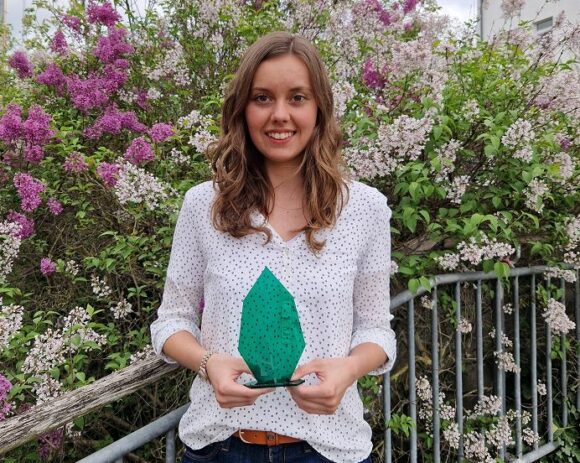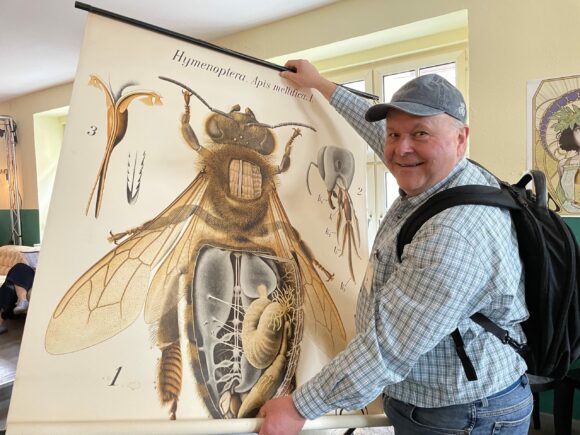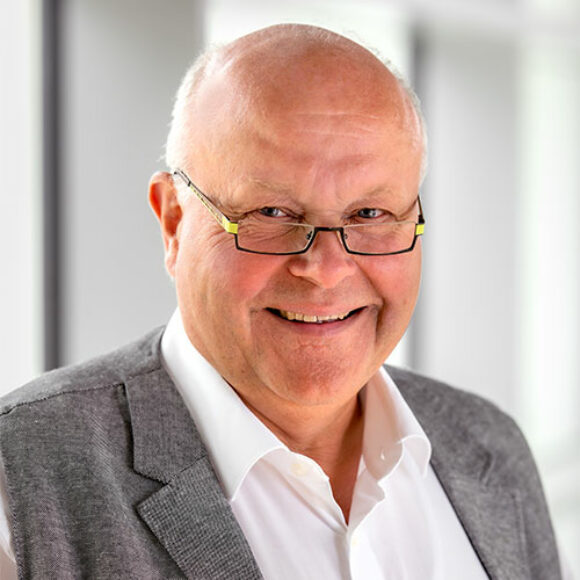The textile industry in Upper Franconia is characterized by a large number of small and medium-sized companies. To support them on their way to a successful future after the hard structural change of the last decades is the goal of a project at the Campus Münchberg of the University of Applied Sciences Hof, which is supported by the European Union. For this reason, the campus now cooperates with eight well-known local companies and ensures a direct transfer of the latest technologies into production. Other interested partner companies can now register their interest.
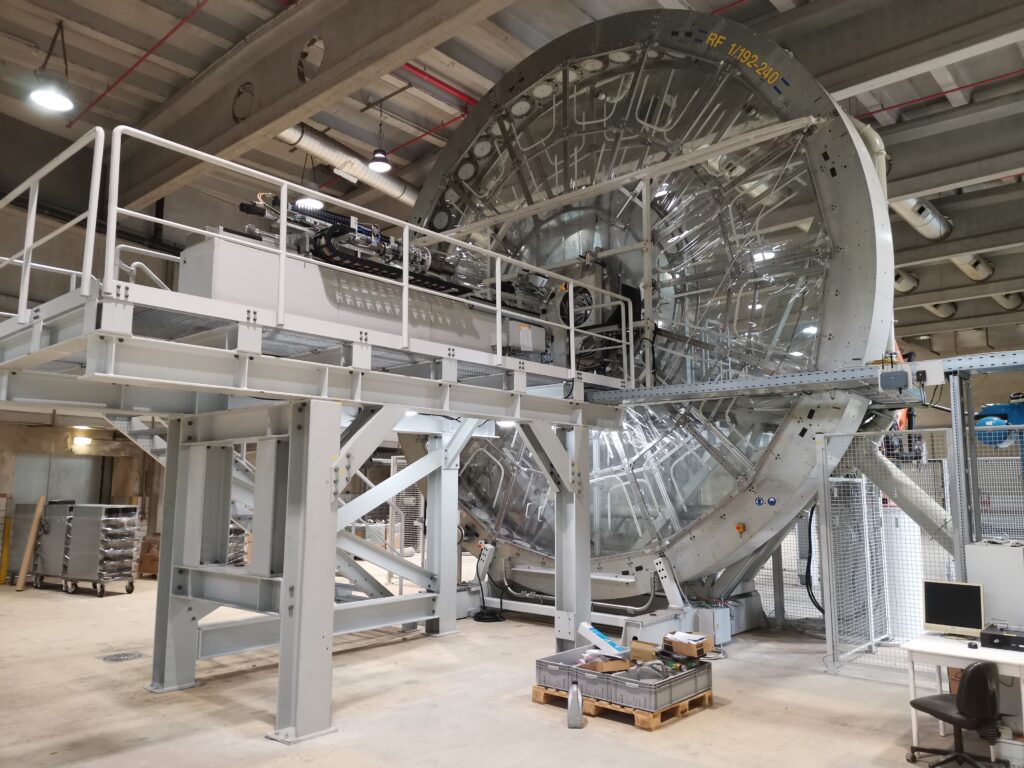
With its technological equipment, the Münchberg campus is a highly exciting playground for the future of the textile industry. A direct transfer of the knowledge and new techniques gained here can be crucial for its future.”
Dr. Eva Max
She continues, “This is a real advantage, especially in our region, where it is important to stay ahead of global developments in terms of technology,” says Dr. Eva Max. The research associate at the Institute for Material Sciences (ifm) at Hof University of Applied Sciences knows what she’s talking about: she herself comes from the tradition-rich textile region, knows the industry and conducts research in the field of innovative textiles.
On the way to Textile Industry 4.0
Since now 2018, Dr. Eva Max has been coordinating the project “Technology transfer as an investment in the future of the textile industry” together with Prof. Dr. Claus-Ekkehard Koukal. The program, which is financed by the European Regional Development Fund (ERDF), explicitly targets small and medium-sized textile companies from structurally weaker regions that have neither more than 250 employees nor more than EUR 50 million in annual sales
The aim is always to remain or become competitive and possibly regain lost market share. We want to enable SMEs to retain jobs or, even better, to create new ones.”
Prof. Dr. Claus-Ekkehard Koukal
To this end, the research capacities of the Faculty of Engineering at Hof University of Applied Sciences are bundled at ifm in a long-standing textile tradition and with the corresponding expertise. These diverse competences of the institute make it possible to offer support individually tailored to the needs of the project partners.
No costs for companies
With World of Textiles, Rohleder (both Konradsreuth), Hofer Textilveredelungs GmbH (Hof), bleed clothing, Hohmann GmbH & Co. KG (both Helmbrechts), Anna Blume Textilmanufaktur (Schwarzenbach), iprotex GmbH & Co. KG (Münchberg) and Gesellschaft für Gewebekompensatoren from Hummeltal, eight local companies are now involved in the project. “The project partners have a number of advantages here: Often, the technology transfer from the university that takes place leads to more economical production, a greater variety of products or improved product quality. And: they bear no costs, because the effort is paid for entirely from funding,” explains Prof. Dr. Koukal.
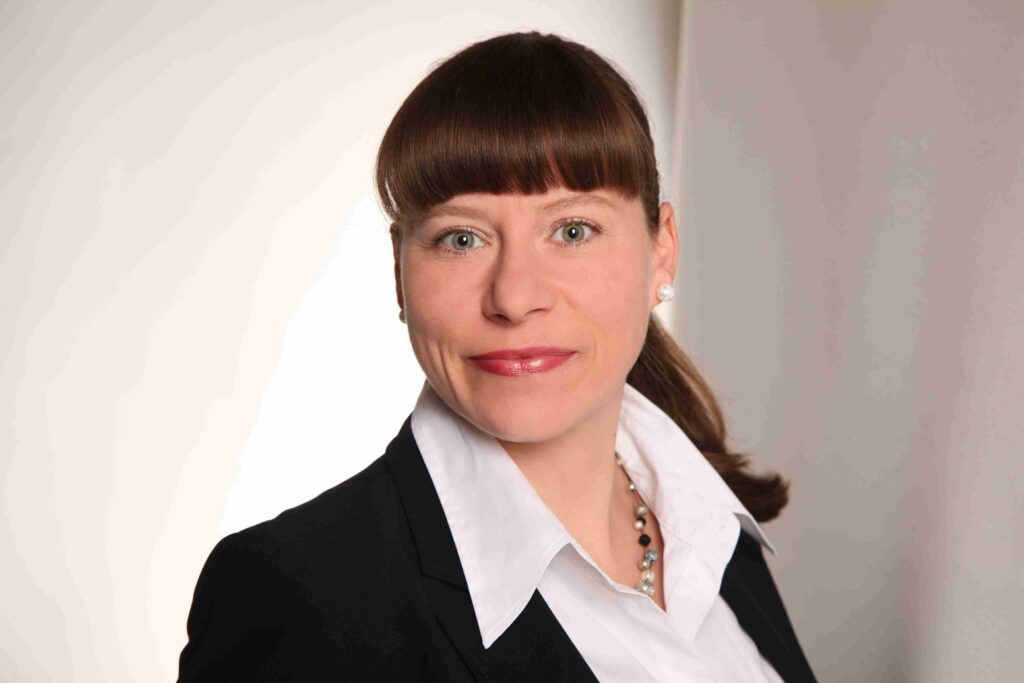
Individual challenges of textile companies
The research approaches and approaches within the project are by no means always the same, but differ according to the respective companies and their specific challenges: “Often we also cooperate with completely different disciplines across the entire university within the framework of the project. The only similarity is usually that we start by taking stock of the production processes in the company. On the basis of this, elements of efficiency and transparency are then proposed in order to optimize economic work in the direction of Industry 4.0,” says Dr. Eva Max.
Results freely accessible
The project’s results to date are correspondingly diverse. “Three examples: For iprotex from Münchberg, we developed a high-tech radial braiding process at the Münchberg campus that enables the company to produce on a much larger scale than before. For Hofer Textilveredelungs GmbH, we were able to find out which bonding and laminating process produces the lowestCO2 emissions for fabrics used in car seat covers. For the Rohleder company, it was possible to optimize the existing production data acquisition system in weaving production – resulting in further efficiency gains.” The Hof University of Applied Sciences attaches great importance to one thing in this context: “Of course, the results achieved with public funding do not only serve the participating companies. On the contrary, we will also publish them and make them generally accessible,” say the scientists involved.
Still looking for two project partners
The project “Technology transfer as an investment in the future of the textile industry” will run until January 31, 2022. Since some collaborations have already been concluded in the meantime, additional project partners on the company side can still get involved with their specific challenges: “The project allows us to start two more individual projects in the area of Textile Industry 4.0. Companies interested in this are welcome to contact the Institute of Materials Science (ifm),” says Dr. Eva Max.
Contact:
Dr. Eva MaxCampus
MünchbergKulmbacher
Str. 7695213 Münchberg
Tel.: +49 9281 409-8000
efre@hof-university.de




